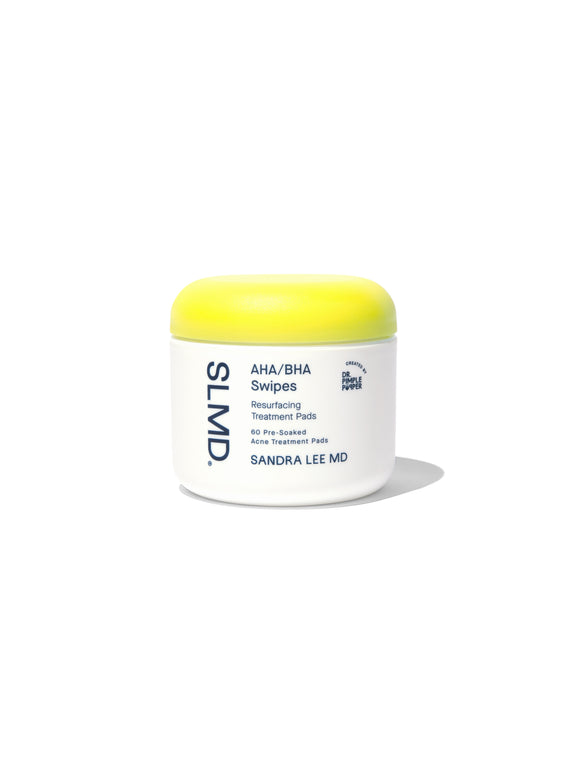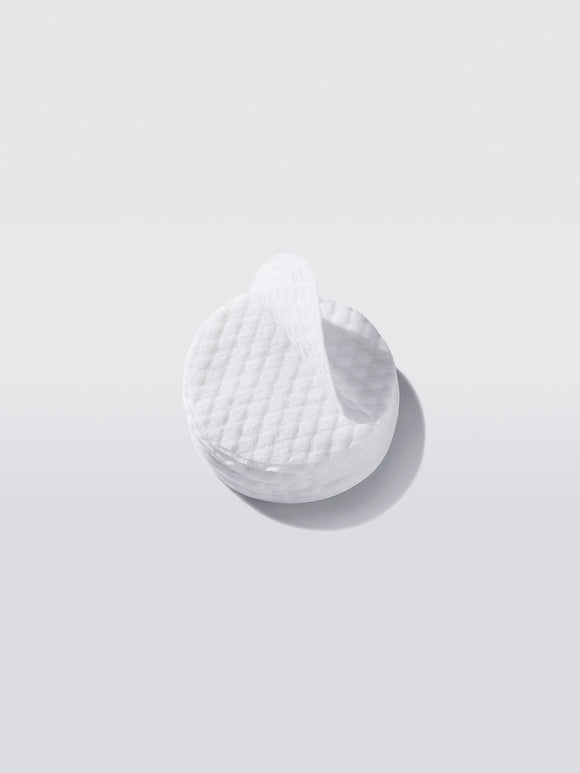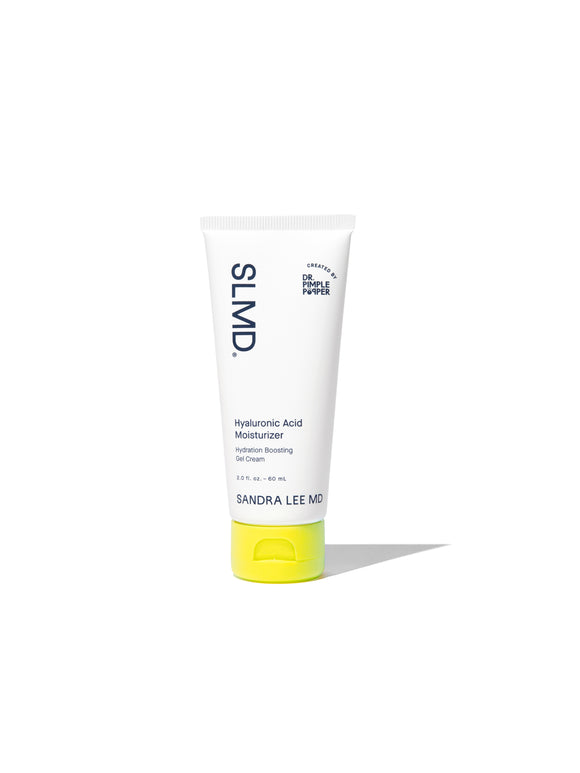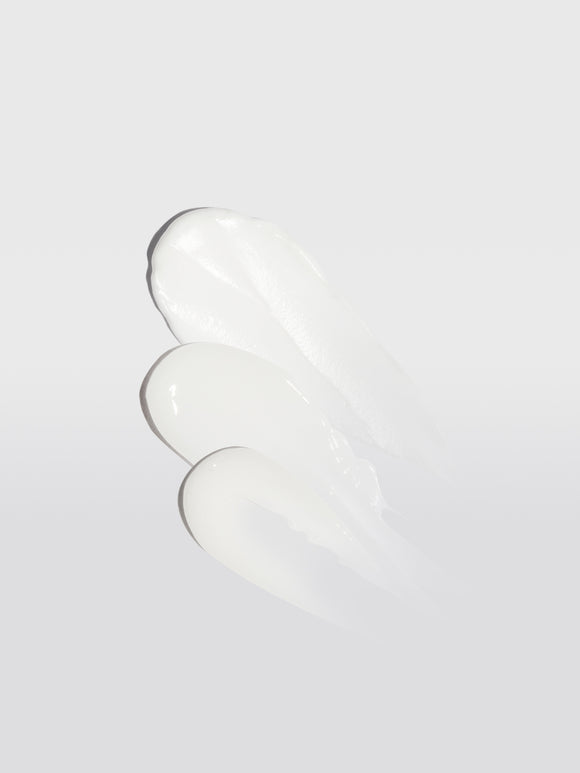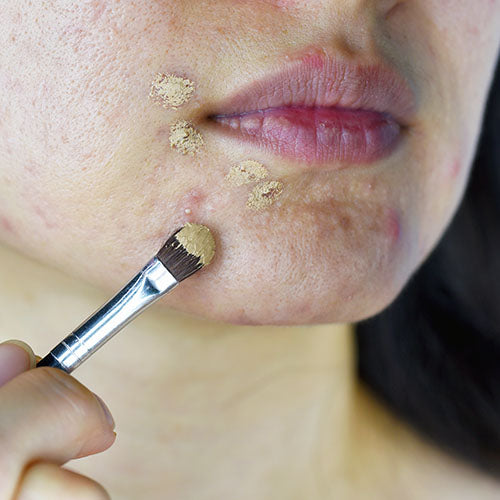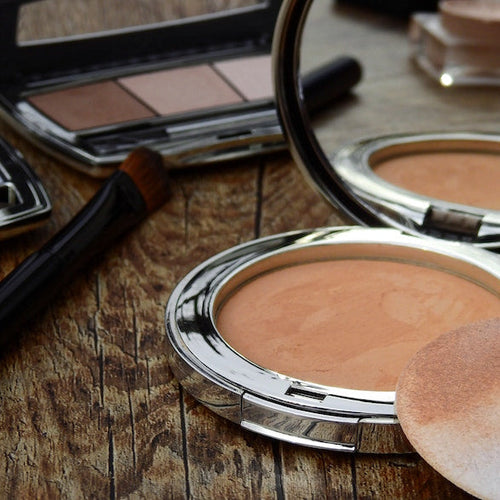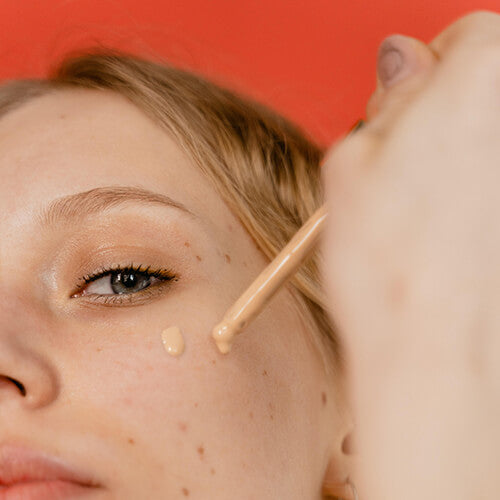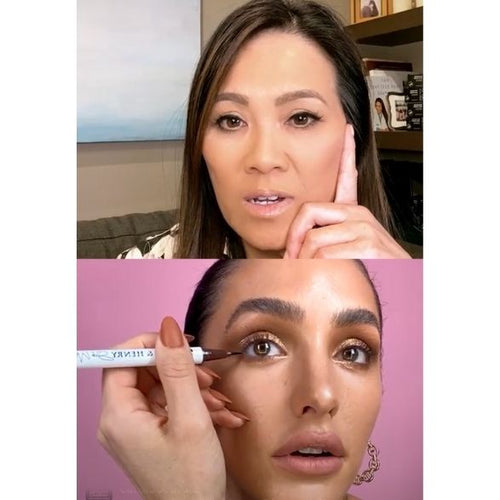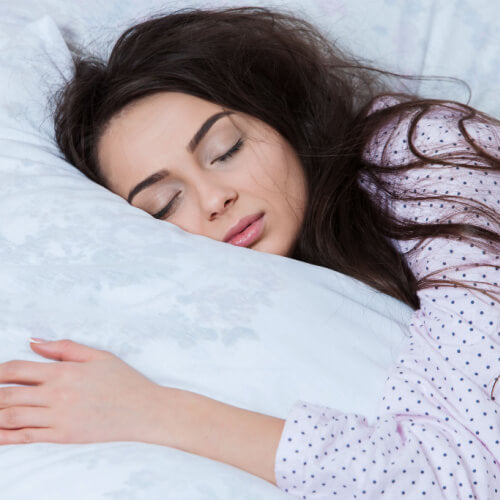
Is Sleeping in Makeup Bad for Your Skin?
It won't kill you, but it can cause a variety of skin concerns, says Dr. Pimple Popper.
Published:
3 minute read
Removing makeup before bed can sometimes feel so…unnecessary. But sleeping in your makeup can have real consequences for your skin health, from clogged pores and breakouts to premature aging. Spoiler alert: it’s not pretty. We asked board-certified dermatologist Sandra Lee, MD (aka Dr. Pimple Popper), to explain exactly what happens when you sleep in makeup — and how to care for your skin, even if you skip your nightly cleanse once in a while.
Article Quick Links
Why is sleeping in makeup so bad for your skin?
At night, your skin goes through a natural rejuvenation process, repairing itself from daily stressors. Sleeping in makeup disrupts this renewal cycle, blocking pores and exposing your skin to potentially irritating ingredients. According to Dr. Lee, all makeup — even “clean” formulas, and especially thicker cosmetics like Halloween makeup — contains ingredients that can negatively affect your skin, including:
- Oils: Can trap dirt and bacteria on the skin, leading to clogged pores.
- Waxes: Form a heavy barrier on the skin, trapping impurities.
- Pigments and preservatives: Can cause irritation and worsen acne.
- Fragrance: Known to irritate skin, compromising the skin barrier.
Many of these substances are occlusive (pore-clogging), meaning they increase the risk of developing microcomedones, or “baby” blackheads and whiteheads, that can eventually enlarge and turn into visible pimples. Sleeping in makeup consistently can cause more lasting effects beyond acne.
What happens to your skin if you sleep in makeup?
While skipping your skincare routine once in a while won’t permanently damage your skin, making it a habit can have a range of consequences. Here’s what happens when you sleep in your makeup:
- Acne and clogged pores: Occlusive ingredients trap oils, dirt, and bacteria in your pores, which can quickly lead to breakouts.
- Collagen breakdown and premature aging: Makeup traps free radicals from pollution, which break down collagen in the skin. Over time, this accelerates aging, leading to wrinkles and sagging.
- Inflammation and irritation: Chemicals in makeup can irritate the skin, causing inflammation and weakening the skin barrier.
- Eye health risks: Leaving eye makeup on can lead to styes, eye infections, and lash breakage due to the buildup of bacteria and makeup particles around sensitive eyelid skin.
The bottom line? Sleeping in your makeup doesn’t just lead to more breakouts; it also causes premature aging and weakens your skin’s natural defenses.
Dr. Pimple Popper's Clean Skin Picks
What’s the best way to take off your makeup?
For everyday makeup, Dr. Lee recommends a two-step approach. Start with a gentle makeup remover on a soft cotton round, focusing on removing eye makeup without harsh scrubbing. Follow with a cleanser containing beta hydroxy acid (BHA), which penetrates into pores to dissolve excess oil. If you enjoy double-cleansing, finish with a brightening face wash.
For heavier makeup — such as stage or Halloween makeup — Dr. Lee suggests starting with an oil-based cleanser to break down thick oils and waxes. Then follow with a makeup remover and your BHA cleanser for a thorough cleanse.
For an extra pore-purifying boost, Dr. Lee recommends using a mini-peel product — something containing a combination of alpha and beta hydroxy acids — after you’re done cleansing.
Morning-after routine: If you’ve slept in your makeup, start the next day by double-cleansing to remove any remaining residue, using a hydrating moisturizer to restore skin moisture, and consider swapping your pillowcase to avoid further irritation from leftover makeup. If you feel a pimple coming on, apply some spot treatment.
Try: SLMD Salicylic Acid Cleanser, AHA/BHA Swipes, BP Acne Spot Treatment, Hyaluronic Acid Moisturizer
FAQ: Common questions about sleeping in makeup
Q: Is it okay to sleep in makeup occasionally?
A: While a one-time lapse won’t do permanent damage, regularly sleeping in makeup can lead to clogged pores, breakouts, and premature aging.
Q: Can sleeping in makeup cause breakouts?
A: Yes, makeup traps oils, dirt, and bacteria in your pores overnight, increasing the likelihood of breakouts.
Q: How does sleeping in makeup affect sensitive skin?
A: Sensitive skin can react to makeup left on overnight with increased inflammation, irritation, and a weakened skin barrier.
Q: What’s the best way to remove makeup thoroughly?
A: Use a two-step cleansing method, starting with a makeup remover and following with a gentle, BHA-based cleanser to dissolve oils and clear pores effectively.

Dr. Lee's Last Word
Please, please don’t sleep in your makeup! People often ask me if skipping face wash once in a while is really so bad…if you forget occasionally, it’s not a big deal. But over time, regularly sleeping in makeup can break down your skin’s defenses, leading to more breakouts and signs of aging.





